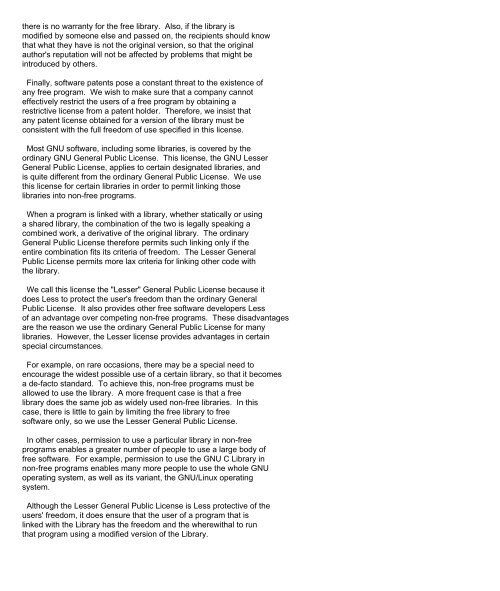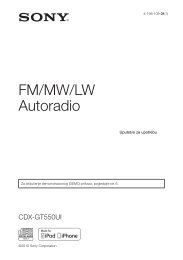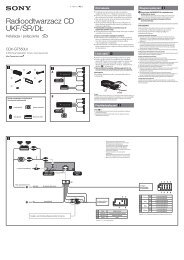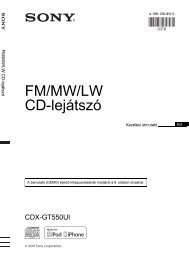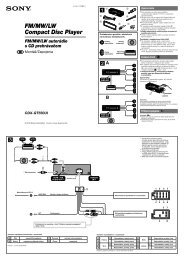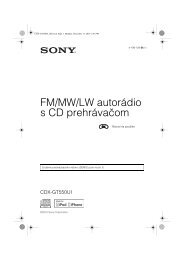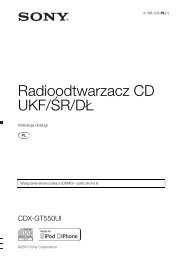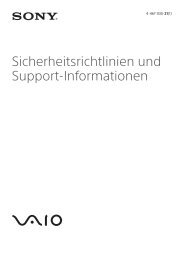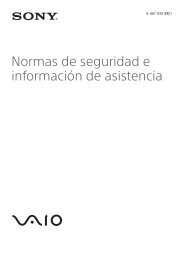Samsung ML-2550 (ML-2550/SEE ) - Guide Open source 0.05 MB, pdf, Anglais
Samsung ML-2550 (ML-2550/SEE ) - Guide Open source 0.05 MB, pdf, Anglais
Samsung ML-2550 (ML-2550/SEE ) - Guide Open source 0.05 MB, pdf, Anglais
Create successful ePaper yourself
Turn your PDF publications into a flip-book with our unique Google optimized e-Paper software.
there is no warranty for the free library. Also, if the library is<br />
modified by someone else and passed on, the recipients should know<br />
that what they have is not the original version, so that the original<br />
author's reputation will not be affected by problems that might be<br />
introduced by others.<br />
Finally, software patents pose a constant threat to the existence of<br />
any free program. We wish to make sure that a company cannot<br />
effectively restrict the users of a free program by obtaining a<br />
restrictive license from a patent holder. Therefore, we insist that<br />
any patent license obtained for a version of the library must be<br />
consistent with the full freedom of use specified in this license.<br />
Most GNU software, including some libraries, is covered by the<br />
ordinary GNU General Public License. This license, the GNU Lesser<br />
General Public License, applies to certain designated libraries, and<br />
is quite different from the ordinary General Public License. We use<br />
this license for certain libraries in order to permit linking those<br />
libraries into non-free programs.<br />
When a program is linked with a library, whether statically or using<br />
a shared library, the combination of the two is legally speaking a<br />
combined work, a derivative of the original library. The ordinary<br />
General Public License therefore permits such linking only if the<br />
entire combination fits its criteria of freedom. The Lesser General<br />
Public License permits more lax criteria for linking other code with<br />
the library.<br />
We call this license the "Lesser" General Public License because it<br />
does Less to protect the user's freedom than the ordinary General<br />
Public License. It also provides other free software developers Less<br />
of an advantage over competing non-free programs. These disadvantages<br />
are the reason we use the ordinary General Public License for many<br />
libraries. However, the Lesser license provides advantages in certain<br />
special circumstances.<br />
For example, on rare occasions, there may be a special need to<br />
encourage the widest possible use of a certain library, so that it becomes<br />
a de-facto standard. To achieve this, non-free programs must be<br />
allowed to use the library. A more frequent case is that a free<br />
library does the same job as widely used non-free libraries. In this<br />
case, there is little to gain by limiting the free library to free<br />
software only, so we use the Lesser General Public License.<br />
In other cases, permission to use a particular library in non-free<br />
programs enables a greater number of people to use a large body of<br />
free software. For example, permission to use the GNU C Library in<br />
non-free programs enables many more people to use the whole GNU<br />
operating system, as well as its variant, the GNU/Linux operating<br />
system.<br />
Although the Lesser General Public License is Less protective of the<br />
users' freedom, it does ensure that the user of a program that is<br />
linked with the Library has the freedom and the wherewithal to run<br />
that program using a modified version of the Library.


